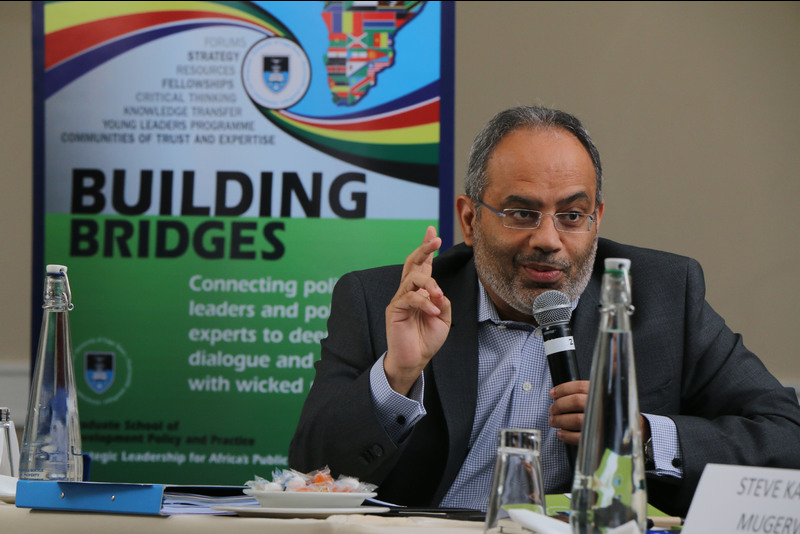Honorary professorship for AU Development Advisor
07 June 2017 | Story Carla Lever. Photo Supplied.
There is a new honorary professor on campus. Dr Carlos Lopes is a Bissau-Guinean development economist, author, educator and civil servant who most recently acted as select advisor on African Union reform, reporting to Rwandan president Paul Kagame. His appointment, announced on 1 June, will run for a five-year term until 2022.
This move is a coup for UCT and particularly the Graduate School of Development Policy and Practice (GSDPP) where Professor Lopes is based.
Professor Lopes has a distinguished academic background in development and strategic planning, having authored or edited 22 books to date and having taught at academic institutions including Oxford, Lisbon, Coimbra, Zurich, Uppsala, São Paulo and Rio de Janeiro.
The recipient of several honorary doctorates in addition to his own PhD from the University of Paris Panthéon-Sorbonne, he has used his influence to help establish various non-governmental organisations and centres for social research, particularly in Africa.
It is his extensive practical experience as one of the most effective public servants on the continent, however, that makes his appointment particularly valuable for the University of Cape Town (UCT).
Most recently, Professor Lopes was executive secretary of the United Nations Economic Commission for Africa. Over the past year he was one of a small, distinguished group of Africans who, under the leadership of President Paul Kagame of Rwanda, prepared a report delivered to the leaders’ summit of the African Union in January 2017 on reforming the African Union. Previously he was vice-chair of the Commission on Illicit Financial Flows from Africa, chaired by former South African president Thabo Mbeki.
The GSDPP occupies a niche position at the nexus of policy research and its practical implementation. Professor Lopes’ appointment will be a powerful addition to their research and teaching network, with students benefiting from the dual input of an experienced African policymaker and internationally recognised academic.
Professor Lopes’ experience is an invaluable contribution to realising UCT’s goal of becoming a globally recognised centre for teaching and research on African economic development.
 This work is licensed under a Creative Commons Attribution-NoDerivatives 4.0 International License.
This work is licensed under a Creative Commons Attribution-NoDerivatives 4.0 International License.
Please view the republishing articles page for more information.










